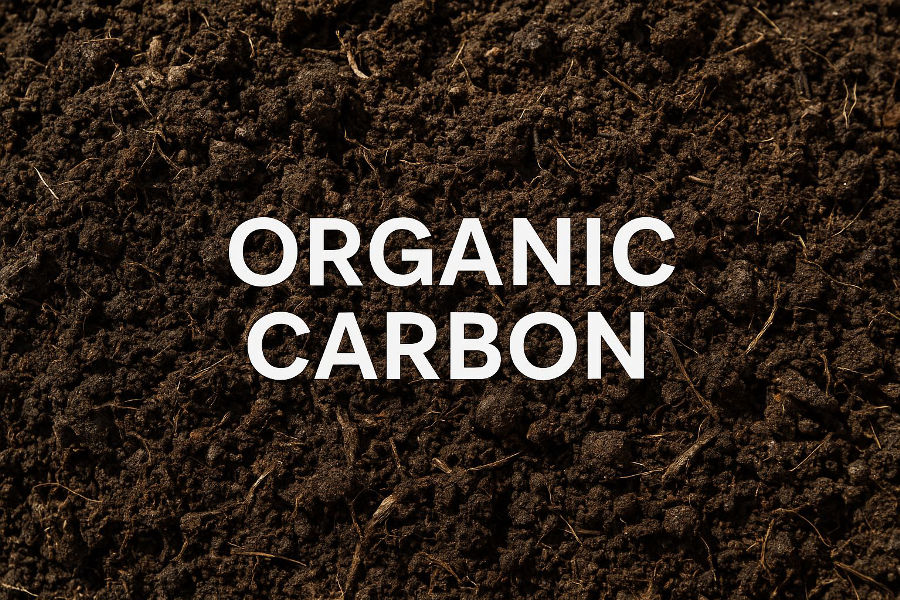Organic Carbon in Soil
Soil is the backbone of farming, and organic carbon is one of its most valuable parts. It mainly comes from decayed plants, animal residues, and microorganisms. Farmers often say that organic carbon is the “soul of the soil” because it directly affects fertility, productivity, and crop health.
Why Organic Carbon is Important
Organic carbon improves soil in many ways. It binds soil particles together, which makes the soil loose and easy for roots to grow. It also increases water-holding capacity, so crops don’t suffer quickly during dry days. When organic matter decomposes, it releases important nutrients like nitrogen, phosphorus, and sulfur that help plants grow. Another benefit is that it provides food for helpful soil microbes, which in turn make the soil more fertile. On a larger level, soils rich in organic carbon also trap more carbon dioxide, which helps reduce the effects of climate change.
How Farmers Can Increase Organic Carbon
Building up organic carbon is not very difficult if farmers follow the right practices. Adding farmyard manure, compost, or green manure regularly is one of the best ways. Growing cover crops and legumes adds biomass to the soil and improves fertility. Farmers should also avoid burning crop residues and instead use them to enrich the soil. Reducing deep tillage can also help, as it prevents carbon loss from the soil.
